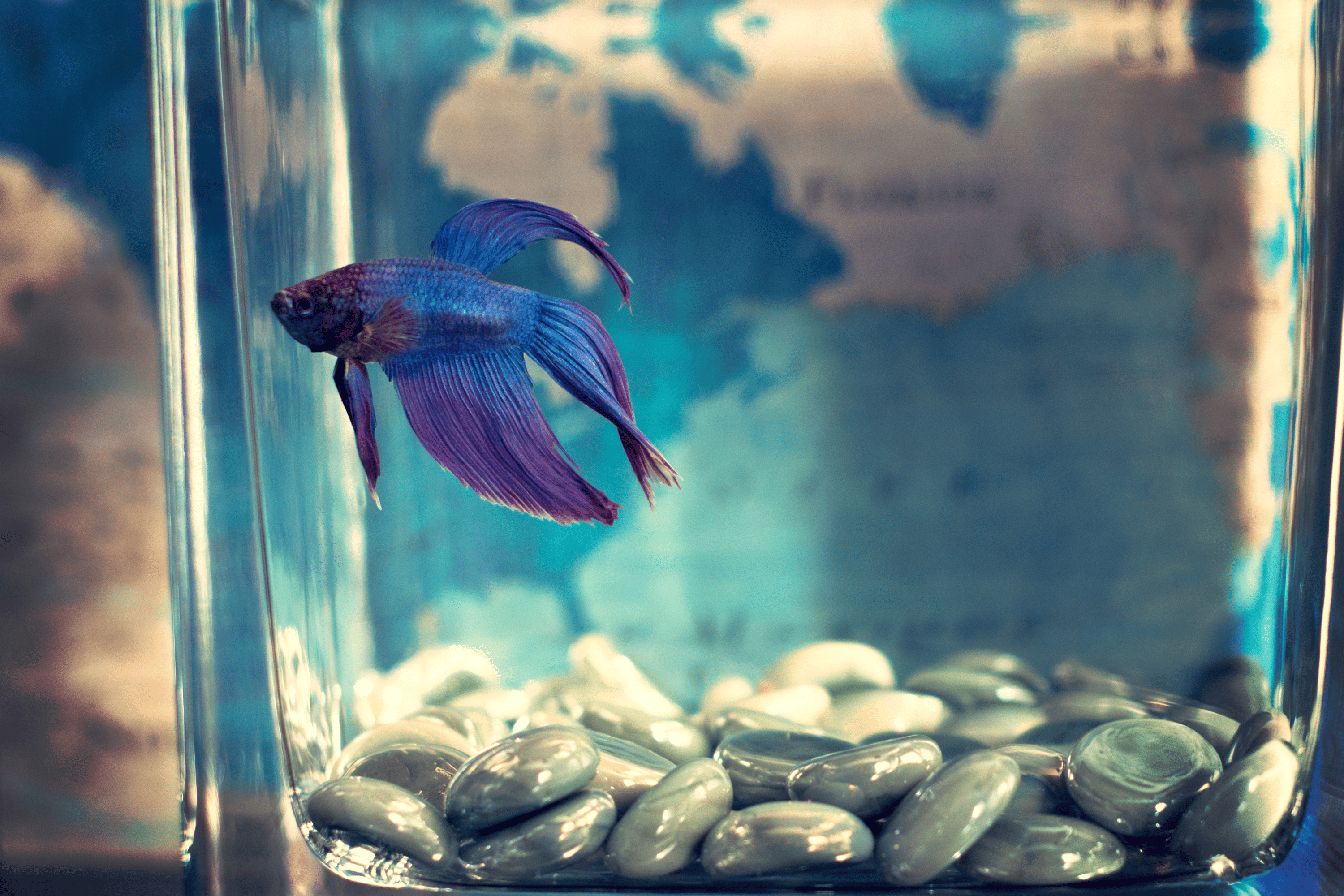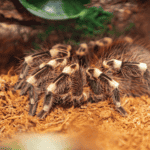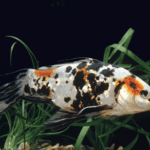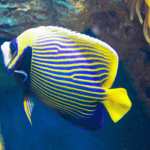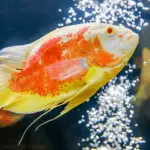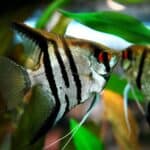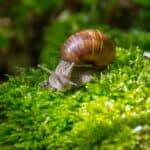Betta fish, also known as Siamese fighting fish, are popular aquatic pets prized for their vibrant colors and unique personalities. In order to ensure these captivating creatures maintain their health and brilliance, it is essential to provide them with a proper diet that caters to their specific dietary needs. Providing the best food for betta fish not only supports their overall health, but also aids in promoting their colors and extending their lifespan.
One of the most effective food choices for bettas is pellets, as they are high in quality, easily accessible in most pet stores, and can be fed as a daily source of nutrition. Additionally, alternating their diet with freeze-dried or fresh food options, like bloodworms and brine shrimp, can provide an extra boost to betta fish’s dietary variety and overall health. When choosing the best betta fish food, it’s important to read reviews and follow expert recommendations to ensure the highest quality nutrition is provided.
Understanding Betta Fish Nutrition
The Importance of Protein
Betta fish are primarily carnivorous and require a high-protein diet for optimal health. Their nutrition should comprise at least 30 percent crude protein, with ingredients consisting of dried meats of shrimp, krill, or fish. A high-protein diet is essential for betta fish to maintain proper growth, digestion, and overall health.
Nutrients and Vitamins
In addition to protein, betta fish require a balanced diet including nutrients such as fats, fiber, phosphorus, carbohydrates, calcium, and essential vitamins like A, D3, E, K, B1, B2, B3, B5, B6, B12, C, H, and M. These nutrients play an essential role in maintaining the betta’s immune system, energy levels, and metabolism. To provide the best nutritional value, make sure your betta food:
- Is natural and contains protein as the first ingredient
- Does not contain ingredients or flakes made for goldfish or other tropical fish
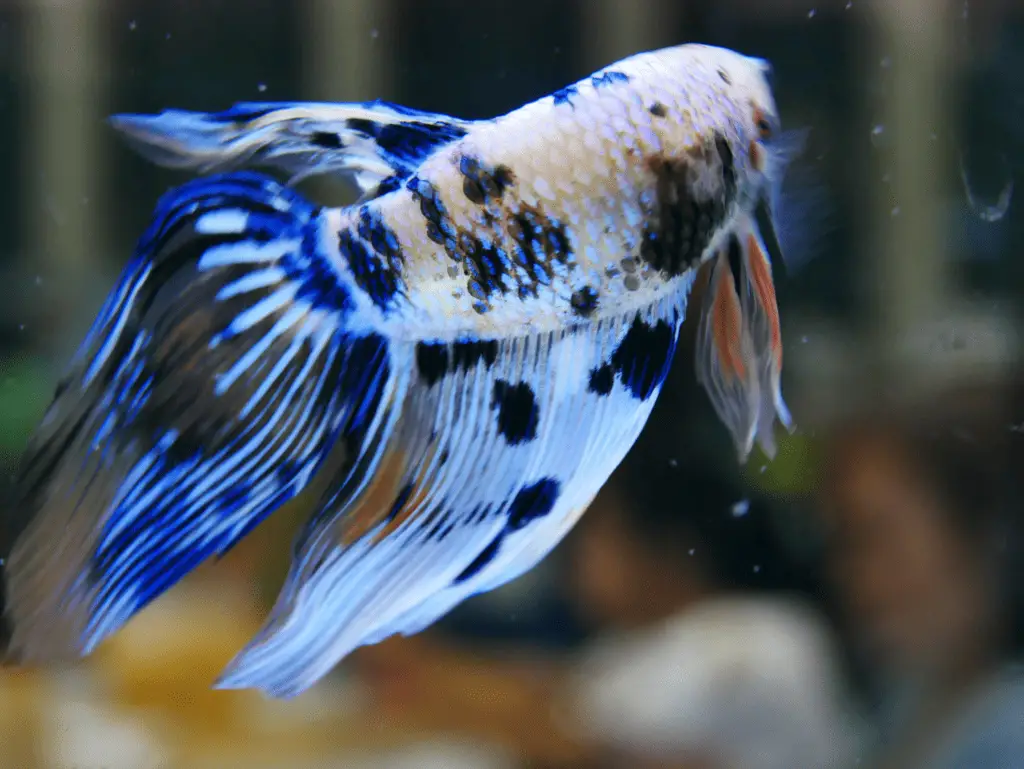
Carnivorous Diet
As carnivorous creatures, betta fish thrive on a diet consisting mostly of meat. Their digestive system is designed to efficiently break down and absorb nutrients from animal-based food sources such as shrimp, krill, and fish. Pellets are the most effective and widely available choice, containing high-quality ingredients and essential nutrients. They can be found in various sizes and colors, often with feeding instructions. It is crucial to feed your betta fish the right amount of food, usually ranging from two to twelve pellets in about five minutes.
Remember that understanding betta fish nutrition is essential to keeping your pet healthy and satisfied. Providing a balanced diet with an emphasis on high-quality, protein-rich ingredients will ensure better growth, digestion, and overall wellbeing for your betta fish.
Types of Food for Betta Fish
Pellets
Pellets are a popular and effective choice for feeding betta fish. They come in various sizes and colors, and are available at most pet stores. High-quality betta fish pellets have a balanced diet with high protein content. When selecting pellets, opt for a reputable brand to ensure the best nutritional value for your betta.
Flakes
Fish flakes are another common option for betta fish food. However, they may not be sufficient as a standalone source of nutrition, as they often lack the necessary protein content for betta fish. If using flakes as part of your fish’s diet, ensure that they are supplemented with other food sources to provide a well-rounded nutrition.
Frozen Foods
Frozen foods for betta fish include options such as brine shrimp, bloodworms, and krill. These provide a natural and high-protein diet for your betta while retaining most of their nutrients. However, it is essential to thaw frozen foods before feeding them to your fish. Be mindful of potential bacteria growth and parasites when using frozen food; opt for trusted brands to minimize these risks.
Live Foods
Live foods, such as mosquito larvae, brine shrimp, and small insects, are a nutritious and natural option for betta fish. However, live foods can also carry bacteria and parasites, so it is crucial to source them from a reliable supplier. Feeding live foods to your betta fish provides an opportunity to stimulate their natural hunting behavior and can offer mental as well as physical enrichment.
Freeze-Dried Foods
Freeze-dried foods, such as bloodworms, brine shrimp, and daphnia, are another alternative for betta fish food. The process of freeze-drying removes moisture from the food, thus decreasing the risk of bacteria growth. These foods provide high protein content and are convenient to store and use. When feeding freeze-dried foods to your betta fish, it is recommended to rehydrate them in water before feeding to prevent digestive issues.
In summary, betta fish require a balanced diet that includes a variety of foods to ensure proper nutrition. It is essential to provide high-quality food sources, such as pellets, live or frozen foods, and occasionally supplement with flakes and freeze-dried options. Always consider the quality and safety of the products for your fish by choosing reputable brands and suppliers, and keeping hygiene as a priority.
Popular Betta Fish Food Brands
In this section, we will discuss popular betta fish food brands that cater to the nutritional needs of betta fish. These brands offer various formula options such as pellets, bloodworms, and whole food blends.
San Francisco Bay Freeze Dried Bloodworms
San Francisco Bay is a well-known brand in the fish food industry that offers freeze-dried bloodworms, which are a nutritious and popular option for betta fish. Bloodworms provide high protein content, making them an excellent choice for a betta’s diet.
These freeze-dried bloodworms are carefully processed to ensure optimal nutritional value. They are easy to store and do not require any refrigeration. To feed your betta, simply soak the desired amount of bloodworms in water for a few minutes to rehydrate and then offer it to your fish.
- Country Of Origin : China
- The Package Length Of The Product Is 5.9 Inches
- The Package Width Of The Product Is 2.5 Inches
- The Package Height Of The Product Is 2.5 Inches
Omega Sea Betta Buffet Pellets
Omega Sea is another reputable brand that offers Betta Buffet Pellets specially designed for betta fish. These pellets are formulated with high-quality fish meal, providing the necessary protein required for betta fish health.
The Omega Sea Betta Buffet Pellets also contain added vitamins and minerals essential for proper betta fish nutrition. These slow-sinking pellets are convenient for feeding, and their small size ensures that bettas can easily consume them.
- The only dry fish food in the world made directly from fresh seafood
- 100% meal free
- Rich in critical Omega 3 & 6 Fatty Acids
- Natural beta carotenes in salmon provide extreme color enhancement
- Naturally insoluble, reducing water pollution
Aqueon Betta Pellets
The Aqueon Betta Pellets are another popular betta fish food option designed with betta’s dietary requirements in mind. These pellets are made with premium fish meal, offering the protein necessary for a healthy betta fish diet.
In addition to essential nutrients like vitamins and minerals, the Aqueon Betta Pellets also include added ingredients such as color-enhancing agents and other beneficial components. The slow-sinking nature of these pellets makes them easy for bettas to feed on, while their small size aids in consumption.
In summary, by offering a variety of foods from these popular brands – San Francisco Bay Freeze Dried Bloodworms, Omega Sea Betta Buffet Pellets, and Aqueon Betta Pellets – betta fish can receive the proper and balanced nutrition they need to thrive.
- Nutritionally balanced for Betta
- Developed around a betta's natural diet
- Pellets float to allow for surface feeding
- Contains color enhancers for vibrancy
- Ideal for Betta, Gouramis and Paradise Fish
Proper Feeding Techniques
How Often to Feed
Feeding your betta fish the right amount of food at the right times is crucial for maintaining its health and happiness. In general, betta fish should be fed 1 to 2 times daily. The optimal feeding schedule may vary depending on the individual fish’s activity level.
Appropriate Portion Sizes
It’s essential to provide the correct portion size for your betta fish to prevent overfeeding or underfeeding. A safe amount consists of 2-3 pellets given 1-2 times daily. Adjustments to the portion size can be made based on the fish’s size and appetite.
Floating Pellet vs Sinking Pellets
Betta fish can be fed with either floating or sinking pellets, and each type has its advantages and disadvantages.
Floating Pellets:
- Easier for bettas to locate at the water’s surface
- Less likely to spoil water quality since they are more visible and can be removed if uneaten
Sinking Pellets:
- Can provide stimulation for bettas who enjoy searching for food at the bottom of the tank
- May be more challenging to find and remove uneaten pellets, potentially affecting water quality
When choosing between floating and sinking pellets, consider your betta fish’s preferences and your ability to maintain water quality. Regardless of the pellet type, ensure any uneaten food is removed from the tank to prevent the growth of harmful bacteria.
By following these feeding techniques, you can help promote a healthy, happy environment for your betta fish.
Common Feeding Issues
Bloating and Constipation
Betta fish can suffer from bloating due to constipation resulting from an improper diet. If you notice your betta is swollen or has difficulty swimming, it may be suffering from constipation. To avoid these issues:
- Provide a varied diet – mix pellets with live, frozen, or freeze-dried food
- Remove uneaten food from the aquarium – decomposing food can affect tank water quality
- Include fiber-rich food sources like daphnia in their diet
Overfeeding
Overfeeding your betta fish can lead to numerous health issues, such as bloating and stress. To prevent overfeeding:
- Feed betta fish 2-3 pellets 1-2 times daily
- Observe your betta’s activity level – adjust food portions accordingly
- Remove uneaten food after 2-3 minutes to minimize tank debris
Poor Dietary Choices
An unhealthy diet can lead to digestive issues, stress, and potential disease in betta fish. To ensure an appropriate diet:
- Avoid low-quality food with fillers
- Choose high-quality pellets as the primary food source
- Offer live, frozen, or freeze-dried foods alongside pellets for variety
Addressing Diet-Related Illnesses
When dealing with diet-related illnesses like dropsy, the following steps can help improve your betta’s condition:
- Alter their diet – focus on high-quality, protein-rich foods
- Increase water changes to maintain a clean tank environment
- Consult a vet or aquatic specialist for further advice on treatment options
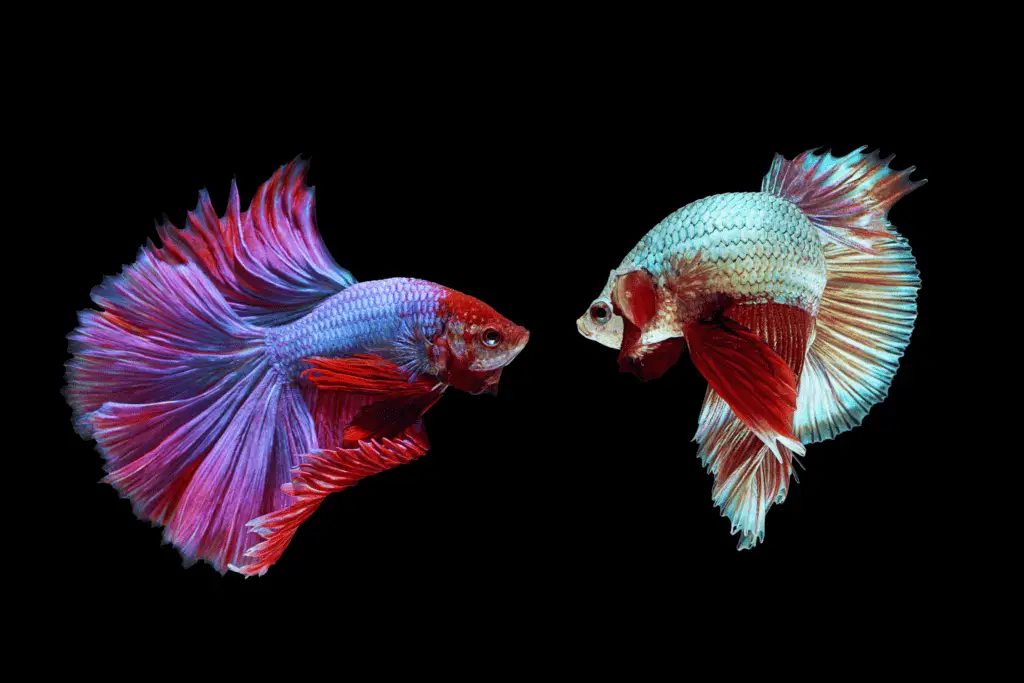
Choosing the Best Food for Betta Fish
Searching for Quality Ingredients
When selecting the best food for your betta fish, prioritize animal-based ingredients such as dried meats from shrimp, krill, and fish. It is crucial to offer a high-protein diet since betta fish are primarily carnivorous. Analyze the labels of fish food and ensure the primary ingredients are animal-sourced. Some quality betta fish food options include Hikari Betta Fish Food Bio Gold and pellets available at local pet stores.
Avoiding Fillers and Preservatives
Some fish food products contain fillers such as wheat flour and unidentifiable ingredients, which provide little nutritional value. Be cautious of fish food with excessive plant matter, as it may be challenging for bettas to digest. Additionally, avoid using goldfish food for bettas, as it doesn’t cater to their specific dietary needs. Look for foods that contain limited chemical preservatives and filler ingredients to provide a balanced and wholesome diet for your siamese-fighting fish.
Evaluating Nutritional Content
Examine the nutritional content of betta fish food and aim for products containing at least 30% crude protein to support growth and overall health. Also, consider fat content, carbohydrates, and essential vitamins necessary for maintaining a healthy environment and water temperature.
When choosing pellet size, find one that is easily consumed and digestible by your betta to prevent any gastrointestinal problems. Ensure the food you select has the necessary feeding instructions to help control portion sizes and prevent overfeeding, which can lead to illness. Consult a veterinarian if you’re unsure about feeding practices or if your fish shows signs of poor health.
Remember, feeding betta fish a nutritionally balanced diet helps prevent diseases, supports breeding and ensures their overall well-being. By focusing on quality ingredients, avoiding unnecessary fillers and preservatives, and evaluating the nutritional content, you can provide the best possible diet for your betta fish.
Incorporating Plant-Based Foods
Although betta fish are primarily carnivorous, incorporating plant-based foods into their diet can be beneficial for their overall health. Plant-based foods can provide essential nutrients, improve digestion, and add variety to the betta’s diet.
Some popular plant-based food options for betta fish include algae pellets, spirulina, and blanched vegetables. Algae pellets are an excellent source of protein and can be found at most pet stores. Spirulina is a nutrient-rich algae that can be added to betta fish food or given as a supplement.
To feed betta fish blanched vegetables, choose a variety of leafy greens such as spinach, lettuce, or kale. Briefly immerse the veggies in boiling water to soften them, then immediately transfer to a bowl of ice water to cool. Once cooled, you can cut the vegetables into small pieces and feed them to your betta fish.
In addition to the plant-based options above, consider adding live plants to the betta’s tank. Live plants not only provide a more natural environment for the betta fish, but they can also be a source of additional fiber in their diet. A betta fish in need of extra fiber can simply nibble on a live plant in its tank.
Remember to keep plant-based foods as a supplement in your betta fish’s diet rather than a primary source of nutrition. The betta’s main diet should still consist of high-quality protein-rich foods, such as pellets specifically formulated for betta fish. By incorporating plant-based foods in moderation, you’ll ensure a well-rounded and balanced diet for your betta fish.
